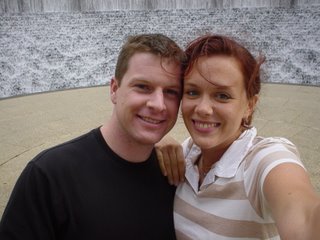Why does God make life hard ... or, to stretch the question across more theological perspectives, why does God allow life to be hard?
If someone were to massage my neck or rub my ear, the pleasant feeling would eventually put me to sleep. The sense of a gentle touch is so pleasing, it would not take much to usher me into semi-consciousness and eventually slumber. However, in the same area, if someone were instead to squeeze or pinch, the exact opposite would happen; I would wake up. I would become more alert. My eyelids would open wider rather than become heavier.
When life is hard, we are more apt to realize our need for God. I do not mean to imply that God is codependent and therefore administers hardship in life so that we might place our trust in him. In reality, the identity crisis is ours, not God's. When life seems manageable, we relax in our own good fortune. Then, when struggles come, we have no other course of action but to wallow in our misfortune. If we do call out to God during these times, it is normally for relief, not understanding.
The purpose of the sacraments is to change our perspective, to draw us out of our deep-rooted selfish tendencies and into the honor of God. When someone is baptized, they are putting under the water everything that was their old self, and emerging as one redeemed and cleansed by a holy God. When we partake of the Eucharist, we are taking into our finite selves the selfless sacrifice of our Savior. Perhaps this is why the Catholic church observes seven sacraments instead of the Protestant two. As Frederick Buechner writes, "A sacrament is when something holy happens." Indeed there is a glimpse of the holy and the Holy One when a child is confirmed in the Church, or when a broken sinner scrapes in confession for forgiveness, or when two lovers are joined in mutual devotion to one another in marriage.
Buechner continues, "Church isn't the only place where the holy happens ... If we weren't blind as bats, we might see that life itself is sacramental."
We must learn to live present to the day to day ebb and flow of life; sometimes it is soothing, oftentimes it is churning violently. And through our recognition of the wondrous difficulty of life - the hardships, the worries, the unknowns, the separations - we would take joy that the goal for which we strive is relief and rest.
The end is simple. Getting there is certainly not. But getting there is not devoid of holy glimpses, open windows between high heaven and lowly earth. I have heard it taught that we must learn to live Sunday to Sunday, seamlessly seeking the next moment where we might return to worship our God. While this is a noble strategy, it can cause us to dread the days in between, or at least disregard them.
Live each day. Hear every atom of all that surrounds as they cry out for us to break our allegiance to ourselves and place our allegiance in a wildly loving, passionate God. A God who is unafraid of our frustration, undaunted by our ignorance. A God who will continue to pour himself out like water upon this life, that we might feel the drops through these open windows, this sacramental life. Can you feel it? It is raining even now.

____________________________________
Glimpses of late ...






